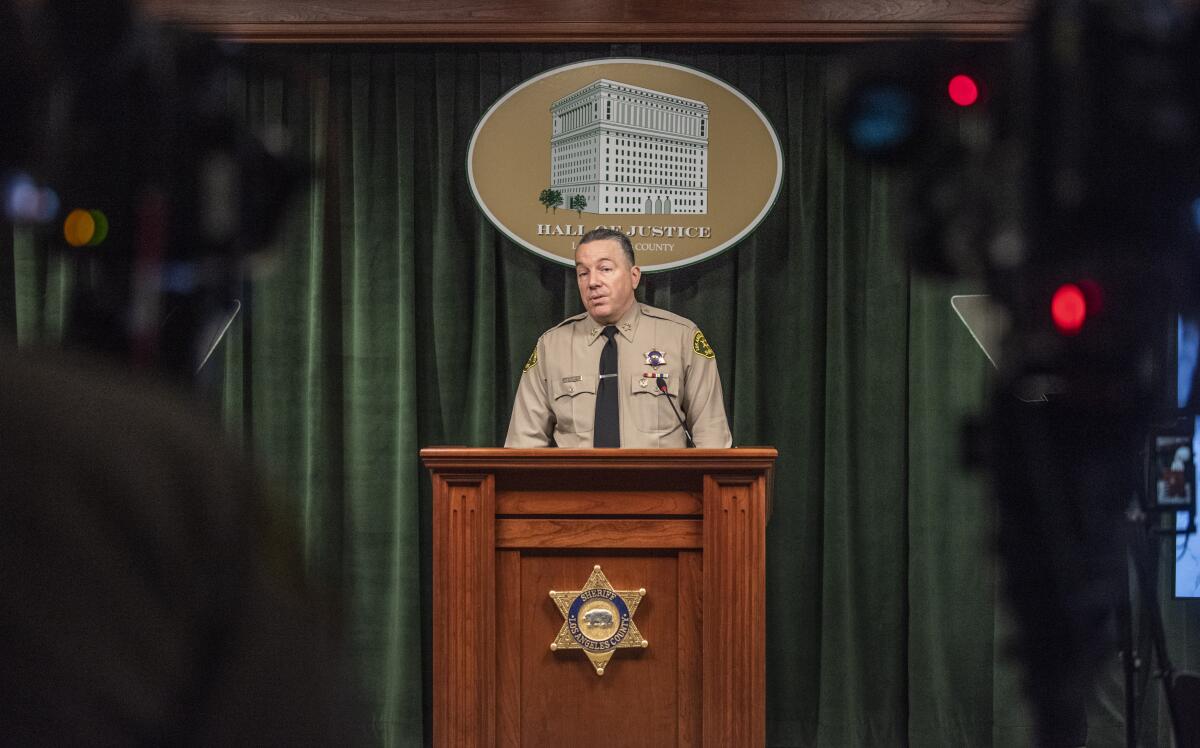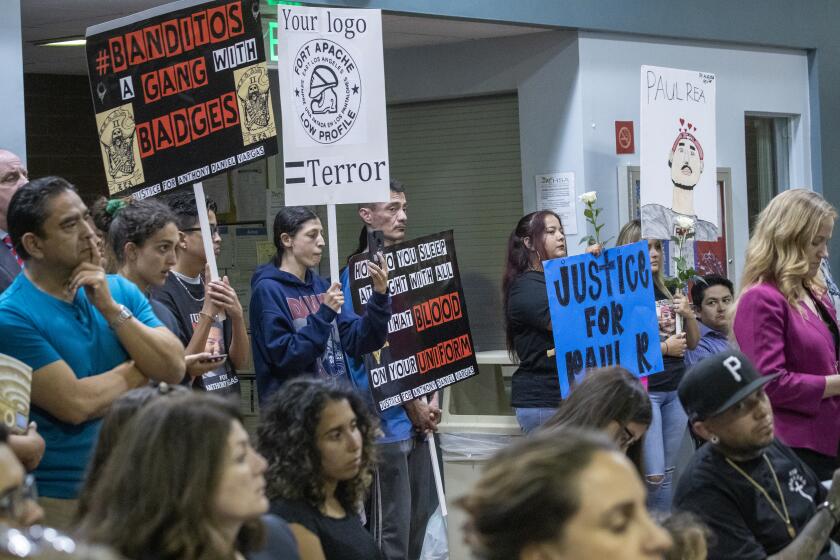In major reversal, L.A. County sheriff will name deputies 30 days after they shoot a civilian

- Share via
Los Angeles County Sheriff Alex Villanueva said Wednesday that the names of deputies who shoot civilians will be released 30 days after the incident, reversing a longtime practice.
As recently as last month, Villanueva had said that the names would come out only after the district attorney’s office finishes its review of each shooting, which can take months or years.
Villanueva’s change of course comes after The Times found that his department was an outlier among some of California’s largest law enforcement agencies, which readily identify officers involved in shootings.
The L.A. County Sheriff’s Department’s refusal to name deputies who fire their weapons runs counter to a ruling by the California Supreme Court.
It also follows a push by relatives of people shot by deputies. Some have long complained that months or years may go by before they learn who killed their loved one.
The day before, the county’s Board of Supervisors had directed its lawyers to draft an ordinance requiring the publication of deputies’ identities within 48 hours of a shooting.
“As a parent, to not be given the respect of not just knowing the name of the person who ended your child’s life ... it just seems reasonable to know the name,” Supervisor Holly Mitchell said in an interview Tuesday after the board’s vote on her proposal to draft the ordinance.
L.A. County supervisors move ahead on an ordinance requiring the names of deputies who open fire while on duty to be released within 48 hours.
On Wednesday during a Facebook livestream, Villanueva announced the 30-day window, saying it will give investigators time to evaluate whether a threat exists against the deputy.
He said that in one recent shooting, there was a specific threat from a gang in prison “putting what they call a green light on deputies.”
“So that name will not be revealed,” he said, without specifying the shooting. “So if somebody wants to complain about it, well, you should complain to the people that are making the threats against the deputies.”
This week, the department will publish online 95 names that have not previously been released, he added.
“The idea is we want to be as transparent as we can, but we can’t jeopardize ongoing investigations and we can’t create a threat to someone,” he said. “We have to keep that in mind. So we’re going to balance the two things and the public’s right and need to know.”
He did not say why he had changed his mind since April 21, when he said on a live broadcast that waiting until the district attorney’s review was concluded was “the proper way to do it.”
But later in the same broadcast, after reading a note that was handed to him, he said the practice was “under review.”
Melanie Ochoa, a senior staff attorney with the ACLU of Southern California, said Villanueva’s new policy was “not doing the public a favor.”
As long as the decision to release the names remains with the sheriff’s department, they are still in danger of being withheld, she said in a written statement.
“LASD has repeatedly violated the Public Records Act prior to his tenure and has only more brazenly done so under his watch,” she said of Villanueva.
The Times report, which ran online May 6, found no shootings between 2018 and 2020 in which the Sheriff’s Department released the names of deputies on its own accord.
When the newspaper filed a lawsuit last year over the agency’s failure to abide by a police transparency law, the Sheriff’s Department belatedly began disclosing information about shootings, including the names of deputies.
The LAPD, by contrast, publicly identified officers in each of the 88 shootings that occurred between 2018 and 2020, according to The Times’ review.
In San Diego, police released the names of officers in all 20 of the city’s police shootings during the same period.
The state Supreme Court ruled in 2014 that law enforcement agencies cannot use general concerns about officer safety to justify withholding names and, barring a specific threat, must make deputies’ names public.
Times staff writer James Queally contributed to this report.
More to Read
Sign up for Essential California
The most important California stories and recommendations in your inbox every morning.
You may occasionally receive promotional content from the Los Angeles Times.












